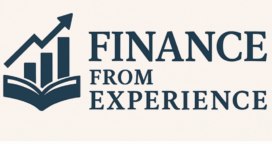What Budgeting Taught Me That Business School Didn’t
Sure, business school taught me the ins and outs of finance—balance sheets, cost accounting, forecasting, and how to whip up a P&L. My MBA loaded me up with frameworks and strategic tools. But none of that truly prepared me for what budgeting feels like when it’s personal—when your livelihood, security, and future hang in the balance. I had to learn that through real-life experience and a lot of grit.
I’ve spent over 25 years running teams, operations, and finances in the service industry. I’ve juggled million-dollar budgets and seen how daily choices directly impact the bottom line. Yet, the most profound financial lessons didn’t come from corporate spreadsheets; they came from managing my own money.
Here’s what my personal budget taught me that business school missed—lessons I believe everyone, from executives to students to families, should grasp.
1. Cash Flow is Not Just a Business Metric—It’s a Lifestyle
Back in business school, cash flow statements felt like abstract puzzles we’d solve. We’d neatly calculate operating, investing, and financing activities using pristine data sets, keeping a safe academic distance.
But out in the real world, cash flow is anything but neat. It’s the stark reality of seeing your paycheck hit the bank, only for half of it to be claimed by bills almost immediately. It’s grappling with tough decisions: “Do I pay down this credit card, or do we need that money to make groceries last another week?”
What budgeting truly hammered home was the critical power of timing—not merely the amount of money you earn, but when you get it and when you spend it. For a business, poor cash flow can be fatal. In your own life, it can feel like you’re slowly suffocating. Mastering my personal cash flow, week by week, month by month, instilled in me a deep sense of discipline and resilience. More importantly, it cultivated an empathy for small business owners and working families that no textbook or spreadsheet could ever provide.
2. Budgets Require Behavior Change, Not Just Math
In business, we talk about budget variances, cost controls, and KPI accountability. But what budgeting taught me personally is that no amount of accounting skill can substitute for behavioral self-discipline.
When I first started seriously tracking my personal spending, I was shocked by how unconscious my habits were. $4 here, $20 there—it added up quickly. I didn’t need better math. I needed to change the way I made decisions.
Business school taught me to think like a strategist. Budgeting taught me to act like a steward.
3. Financial Health Is Built on Small Daily Decisions
Managing a multimillion-dollar operation gave me a high-level understanding of financial ecosystems. But when it came to my personal finances, it was the small, repetitive choices that made the biggest impact.
Skipping the drive-thru and cooking dinner. Choosing to wait 24 hours before making a non-essential purchase. Automating savings—even if it was just $25 a week. None of these things felt revolutionary on their own. But over time, they gave me control.
Business schools focus heavily on macro strategy. Budgeting, on the other hand, taught me the micro habits that actually build wealth.
4. Money and Our Emotions
I’ve seen plenty of corporate executives make financial decisions with a cool, logical head. But when it comes to our personal finances, money is rarely just about the numbers. It’s deeply connected to our pride, our fears, our sense of identity, and our personal history. Budgeting really pushed me to face things like emotional spending, the challenge of delayed gratification, and even the lingering guilt from past financial missteps.
My MBA never touched on any of that.
Grappling with how money influences human behavior—mine included—has genuinely transformed me. I’m a better manager for it, a more compassionate leader, and definitely a more realistic person overall.
5. A Budget Needs Purpose to Survive
Perhaps the most unexpected thing I learned from budgeting is that it’s useless if you don’t have a why. Just trying to save for saving’s sake almost never lasts. For me, budgeting finally took hold when I tied it to meaningful goals: becoming debt-free, being able to afford trips, contributing to a grandchild’s schooling, or supporting important mission work.
In the corporate world, we align budgets with performance goals. In our personal lives, we need to align them with our deepest values.
Business school was great for teaching me how to develop strategic plans. But budgeting? That taught me how to build a financial plan that truly revolves around my life’s purpose.
Final Thoughts: The Power of Living What You Preach
I genuinely value my MBA. It gave me the tools and the credibility I needed. But the real education? That happened when I finally sat down with my own bank statements and got brutally honest.
Budgeting taught me discipline, accountability, and humility in ways no classroom ever could. And it connected me to others struggling with their finances—my employees, clients, neighbors—in a way theory just can’t replicate.
If you’re feeling swamped by money or your financial goals feel out of reach, don’t underestimate the power of a personal budget. It’s not just about the dollars; it’s about finding your direction. It’s not just about discipline; it’s about discovering what truly matters most.
🔗 Suggested News Articles & Reports to Reference
-
CNBC – “Nearly 60% of Americans Are Living Paycheck to Paycheck”
-
NPR – “The Emotional Side of Money: Why We Overspend and What to Do About It”
-
Forbes – “Why Budgeting Is the Most Underrated Financial Skill”
-
U.S. News & World Report – “How to Make a Budget That Actually Works”
-
Harvard Business Review – “What They Don’t Teach You in Business School About Managing Your Money”
-
Pew Research – “Trends in U.S. Income and Wealth Inequality”

Pingback: Debt Avalanche vs. Snowball: What Actually Worked for Me - Finance From Experience